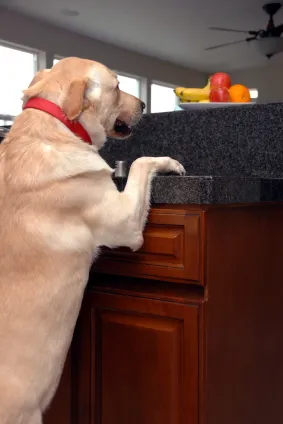Adopting a new dog is an exciting milestone, but without proper structure, it can quickly lead to behavioral challenges. Just like a new employee needs clear guidelines to thrive in a structured company, your newly adopted dog requires boundaries to understand household rules and build a strong relationship with you. This guide explores the “freedom/responsibility quotient”—a key concept in dog training for new owners—helping you balance freedom with accountability from day one. By limiting freedoms early and introducing consistent routines, you’ll prevent common issues like ignoring commands or destructive behavior, setting your dog up for long-term success.
Understanding the Freedom/Responsibility Quotient in Dog Training
Imagine onboarding at a job with no manual or protocols: initial excitement fades into frustration. Newly adopted dogs experience the same when given too much freedom without responsibility. The freedom/responsibility quotient is a practical training principle: excessive freedom relative to a dog’s maturity or training level leads to dysfunction. Dog trainers often see this with rescue dogs, who may have learned survival habits in shelters or previous homes.
The solution is simple—reduce freedoms immediately while building responsibility through structured training. Professional dog trainers recommend a three-step process:
- Relationship building: Establish leadership via leashed walks.
- Basic skills: Teach commands like sit, stay, and heel.
- Household policies: Set default rules, like no jumping or counter surfing.
Start with a structured walk before even entering your home. On this walk, control direction, pace, and stops to teach that it’s your walk, not theirs. This subtle leadership fosters trust. Combine obedience classes with home management for best results. If behavioral problems arise, limit access now—don’t wait for a trainer.
 Dog jumping on kitchen counter, illustrating a common freedom issue in new homes
Dog jumping on kitchen counter, illustrating a common freedom issue in new homes
Creating Structure: Practical Tips for Place, Time, and Resource Freedom
Implementing structure transforms chaotic adoptions into harmonious homes. Focus on three areas: place freedom (where they go), time freedom (daily schedule), and resource freedom (access to food, toys). These evidence-based tips, drawn from years of professional dog training experience, align with guidelines from the American Kennel Club (AKC) and certified behaviorists.
Limiting Place Freedom
Confine your dog’s world to build reliance on you:
Restrict rooms: Close doors and use baby gates to limit access to one or two areas initially. This physical boundary enhances relationship dynamics.
Ban lap jumping: Even small dogs shouldn’t climb into laps uninvited—guide them down gently.
Off-limits zones: No furniture, beds, kids, or counters. Consistency prevents entitlement.
Leash dragging indoors: Attach a leash (no tension) for easy guidance. If they ignore “off,” don’t repeat—lightly lead them away. This teaches compliance without conflict, as many shelter dogs simply lack prior training.
Crate conditioning: Essential for newly adopted dogs. Feed meals inside (door open first), then progress to short closures, building to longer stays. Treat crating like obedience training for success rates over 90% in responsive dogs.
Leashed bathroom breaks: Escort to the yard on leash until house-trained. Unsupervised backyard time leads to digging or escaping.
Supervised yard only: Until rules are learned, watch closely—common issues include barking or chewing.
These steps, recommended by veterinary behaviorists, reduce anxiety and promote calm.
Establishing Time Freedom
Dogs thrive on predictability:
- Daily schedule: Fixed times for wake-up, meals, potty, walks, play, and sleep. Consistency reinforces responsibility, mirroring pack leadership in wild canines.
Managing Resource Freedom
Control valuables to prevent guarding:
Pre-meal obedience: Before feeding, require a sit (hold bowl, wait). Most dogs comply within a minute. Progress to longer holds, adding down or heel. Use dragging leash if needed. This daily ritual builds impulse control.
Toy exchanges: Practice trading toys—remove for a minute, then offer a stuffed Kong. Watch for resource guarding (stiffening, growling); consult a trainer immediately, especially with rescues. Ask shelters about history upfront.
Bonus: Daily Exercise with Structure
- Exercise daily, but structured—leashed walks or fetch, not free-running. Uncontrolled off-leash teaches escape. Aim for 30-60 minutes, per AKC guidelines for adult dogs.
Summary: Building a Lasting Bond with Your Newly Adopted Dog
Structure isn’t punishment—it’s the foundation of a happy, well-adjusted dog. Limit freedoms early, teach household rituals, and start training ASAP. Once responsibility grows (e.g., reliable recalls), gradually expand privileges. This approach revives the “honeymoon phase” magic and prevents regressions.
Your proactive effort makes you an exceptional owner. Consult a certified trainer (like CPDT-KA professionals) or vet for personalized advice. For more dog training tips, explore our guides on obedience basics and crate training.
References:
- American Kennel Club (AKC): “Crate Training Guidelines” (akc.org).
- Certification Council for Professional Dog Trainers (CCPDT): Behavior modification protocols.
- Personal experience from 15+ years training 500+ adopted dogs.
